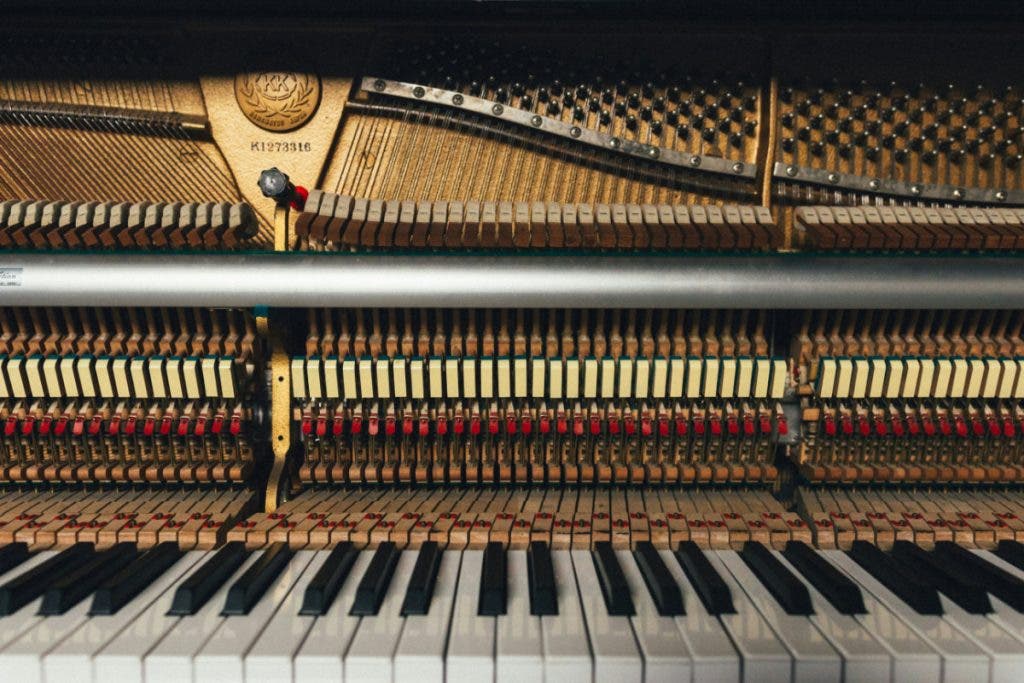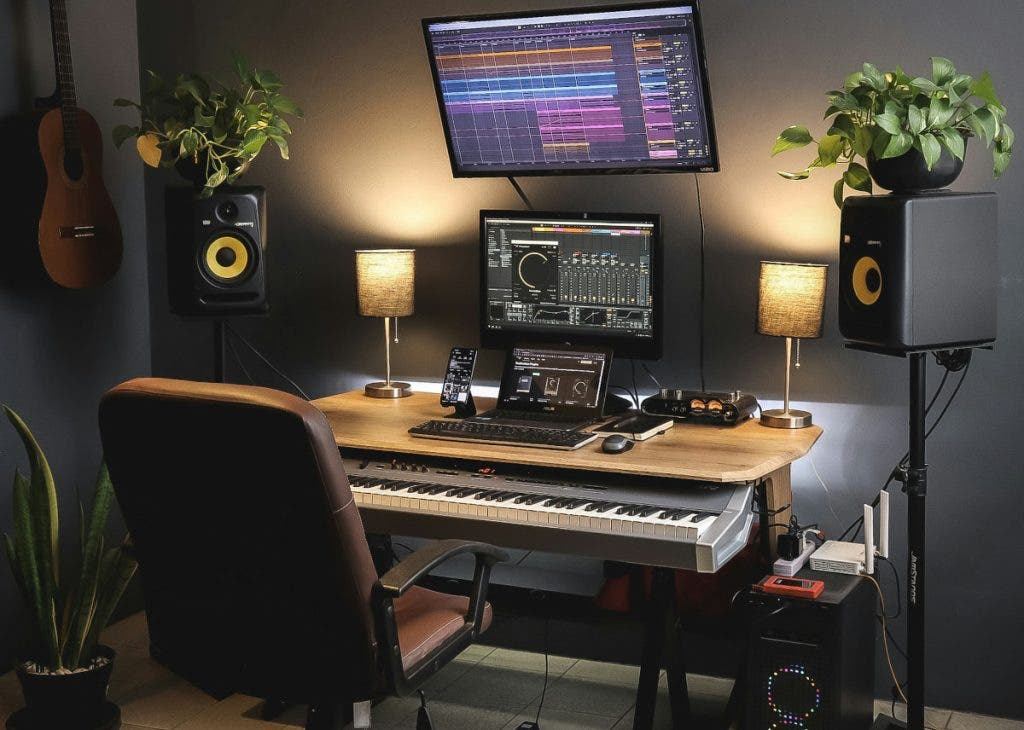The debate on acoustic vs. digital pianos has resonated with musical circles for decades. Each instrument has unique characteristics catering to different preferences, musical styles, and practical considerations. While both acoustic and digital pianos create beautiful music, understanding their differences can help aspiring pianists make an informed decision when selecting their instrument of choice.

The Timelessness of Acoustic Pianos
Acoustic pianos, often hailed as the epitome of musical craftsmanship, offer an unparalleled playing experience. They produce sound through hammers striking strings, which resonate within a wooden soundboard, creating a warm, rich tone. This organic sound quality, with its depth and authenticity, is what captivates listeners.
One of the most significant advantages of acoustic pianos lies in their touch sensitivity. The keys respond to the player’s touch with nuanced dynamics, allowing for subtle expression and articulation. Furthermore, acoustic pianos boast an inherent acoustic presence, filling a room with their sound without the need for amplification. The natural reverberation adds depth and warmth to the music, creating a captivating auditory experience.
However, owning an acoustic piano comes with its challenges. Maintenance is a crucial aspect, as these instruments require regular tuning and upkeep. They are also immobile, making them less practical for individuals with limited space or those who need portability. These factors help fuel the debate: acoustic vs. digital pianos.
The Modern Marvels of Digital Pianos
In contrast, digital pianos represent the technological evolution of the traditional piano. These instruments utilize sampled sounds to replicate the tone of acoustic pianos with remarkable accuracy. Advanced digital pianos incorporate features such as weighted keys and graded hammer action, mimicking the feel of acoustic pianos to provide a realistic playing experience.

Top Notch Digital Pianos
These offer excellent sound quality and touch sensitivity. Each model has unique characteristics, catering to different preferences and playing styles. It’s recommended to try out various models and consider factors such as key action, sound engine, connectivity options, and additional features before making a purchase decision.
Yamaha Arius YDP-S35 88-Key Slim Design Weighted Action Console Digital Piano
The Yamaha Arius YDP-S35 has an authentic piano feel with its weighted action keys, compact design, and a range of high-quality sounds and features suitable for beginners and experienced players.
Roland RP701 88 Keys SuperNATURAL Digital Piano
The Roland RP701 boasts an authentic piano sound and feel, equipped with Roland’s renowned SuperNATURAL Piano Modeling technology for expressive playing, a PHA-4 Standard keyboard for realistic touch, and a wide selection of onboard sounds and features.
Korg C1 Air Bluetooth 88 Key Digital Piano with Real Weighted Hammer Action 3 Keyboard
The Korg C1 Air Keyboard offers a blend of authentic piano feel and modern connectivity. It allows players to enjoy responsive key action while integrating with Bluetooth-enabled devices for expanded musical possibilities.
Entry-Level Digital Pianos
offer a wide range of sounds and additional features, including built-in metronomes, recording capabilities, and various instrument sounds. This versatility makes digital pianos suitable for diverse musical genres and allows players to experiment with different sounds and effects.
Alesis Concert 88 Key Semi-weighted Digital Piano
This Concert 88 Key digital piano by Alesis offers entry-level pianists versatility with semi-weighted keys for a comfortable playing experience, along with a range of features, including built-in speakers, multiple voices, and educational tools to support beginners in their musical journey.
Roland FP-10 88-Key Digital Piano (Black) with Stand, Bench, Pedal & Headphones
The Roland FP-10 features a compact yet feature-rich instrument with authentic piano sound, responsive PHA-4 Standard keyboard action, built-in Bluetooth connectivity, and a selection of essential sounds and functions to support learning and practice.
Korg B2 88-Key Digital Piano, Black Bundle with Bench, Stand, and H&A Studio Headphones
The Korg B2 88-Key Digital Piano offers entry-level pianists a responsive hammer action keyboard, authentic piano sounds, and a sleek design, making it an ideal choice for beginners looking to start their musical journey with a quality instrument.

Highly Portable Digital Pianos
enable pianists to practice, perform, and create music wherever they go. Their lightweight and compact designs make digital pianos easy to transport to gigs, rehearsals, or even outdoor venues. Many models feature built-in speakers and battery operation, eliminating the need for external amplification and power sources, further enhancing their portability. Additionally, the availability of optional accessories such as carrying cases or stands enhances convenience for musicians on the move.
Roland FP-30X Portable Digital Piano, Black w/ Stand, Bench, Pedal & Headphones
Portable and versatile, the FP-30X has Roland’s SuperNATURAL Piano sound engine and Bluetooth connectivity for wireless audio streaming.
Yamaha NP-32 Piaggero Portable 76 Key Piano-Style Keyboard with AC Adapter
The NP-32 is ultra-portable with 76 keys and Yamaha’s Graded Soft Touch keyboard for easy transport and playability.
Casio CDP-S160 88-Key Compact Digital Piano, Black with Accessories Kit
Slim and lightweight design with scaled hammer action keys. The Casio CDP-S160 is ideal for musicians on the go.
Digital pianos are compact, lightweight, and often equipped with headphone jacks, allowing for silent practice and performance. Unlike acoustic pianos, they are a low-maintenance option for pianists. Despite their technological advancements, digital pianos may lack the authentic acoustic resonance and touch sensitivity found in traditional pianos. While manufacturers strive to replicate the sound and feel of acoustic pianos, some purists argue that digital pianos cannot fully capture the nuances and depth of acoustic instruments.
Choosing the Right Piano
Ultimately, the choice between acoustic and digital pianos depends on individual preferences, musical goals, and practical considerations. Traditionalists may gravitate towards the timeless elegance and organic sound of acoustic pianos, valuing the tactile experience and acoustic presence they offer. On the other hand, modern musicians may appreciate the versatility, portability, and technological innovations of digital pianos, embracing the convenience and flexibility they provide.
For beginners or casual players, digital pianos may offer a more accessible entry point into the world of piano playing, providing a cost-effective and user-friendly alternative to acoustic instruments. Conversely, serious pianists and professional musicians may opt for acoustic pianos, prioritizing the authentic sound, touch sensitivity, and expressive capabilities they offer.
Conclusion
In the acoustic vs. digital pianos debate, both instruments have their merits and can inspire beautiful music in the hands of skilled players. Ultimately, the essence of piano playing lies not in the instrument itself but in the passion, dedication, and creativity of the musician who brings it to life.






